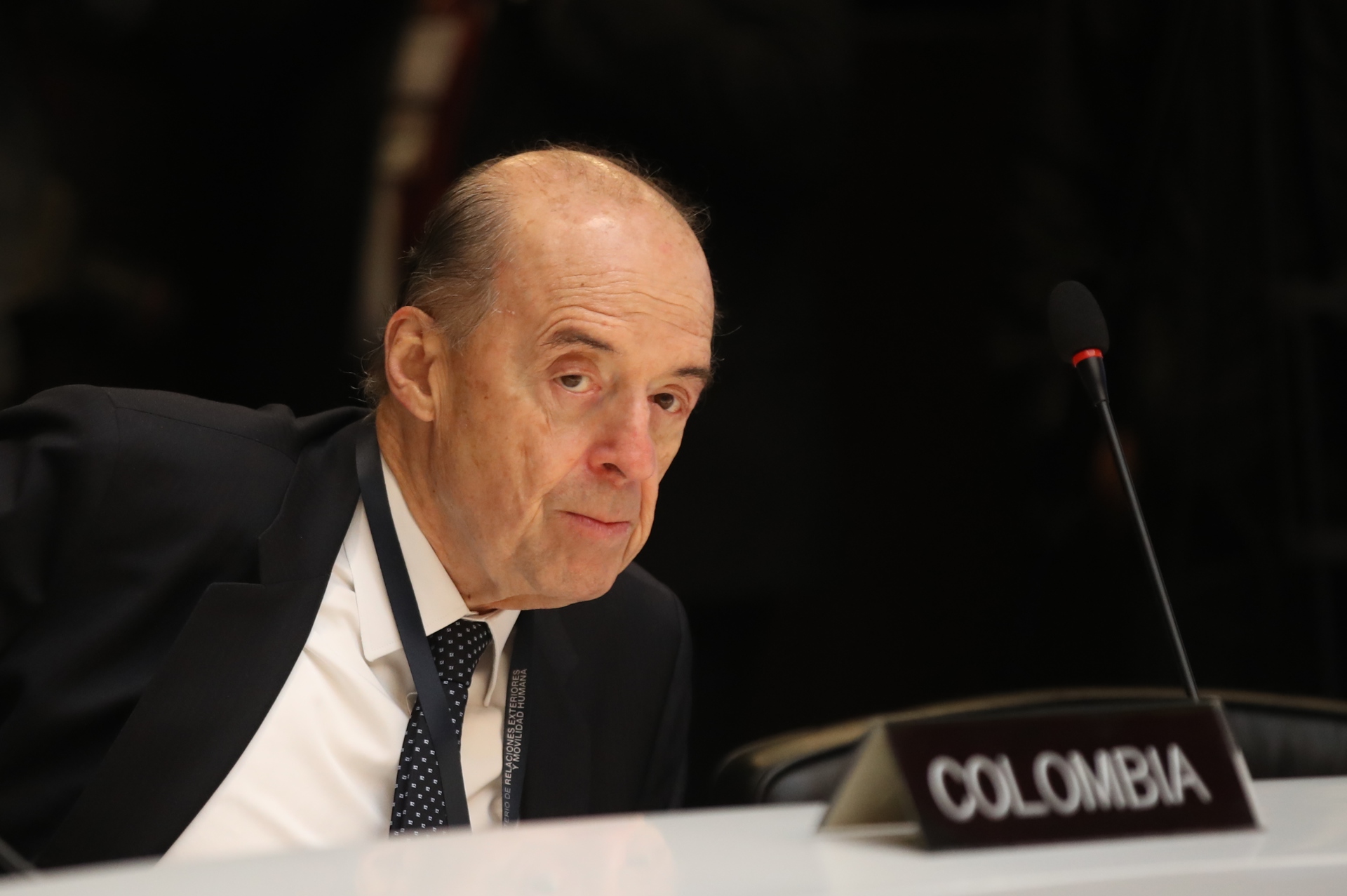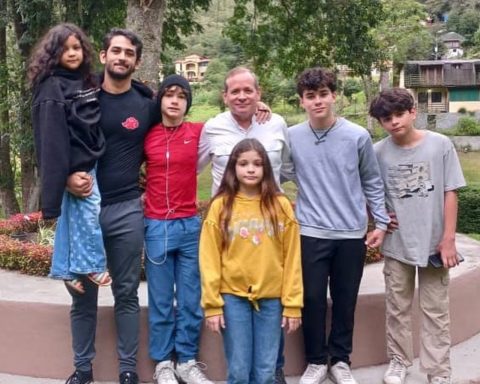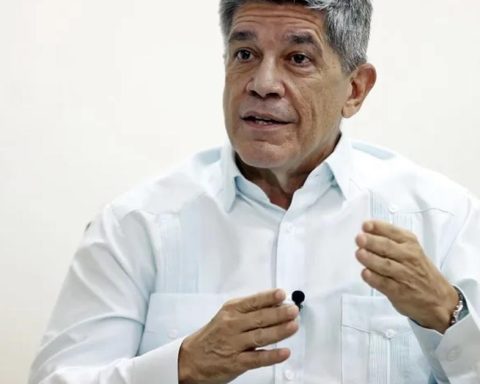The Government of Colombia will change its strategy in the dispute with Nicaragua before the International Court of Justice (ICJ), based in The Hague, so that it is more transparent so that the country is more aware and participates in the process.
“Everything must be put on the table,” said Colombian Foreign Minister Álvaro Leyva on Tuesday in a meeting with journalists in Bogotá in which he referred to the oral hearings on the alleged Nicaraguan continental shelf beyond 200 nautical miles. , which will take place from December 5 to 9.
For this purpose, Leyva installed the new representatives of the country before the ICJ on Tuesday, a team headed by the jurist Eduardo Valencia-Ospina, who will be the new agent for Colombia, and Carolina Olarte-Bácares and Elizabeth Taylor as co-agents.
The foreign minister described the one that Colombia will have before the ICJ as an “exceptional team” due to its academic training and experience, and highlighted the participation of the Raizales, represented by Taylor, a native of Providencia Island, former Colombian ambassador to Kenya and who will also be special ambassador for the Caribbean.
Related news: ICJ ruling between Nicaragua and Colombia on the maritime border turns 10
Leyva stressed that the government of President Gustavo Petro wants to configure a new foreign policy, which includes a change in the way the litigation in The Hague will be handled, for which he said that “very substantial advisers” are needed.
He also pointed out that there will be no “mysteries” in the handling so that “the press is aware of everything” and the country as well and takes ownership of the case because until now public opinion has turned its back on the litigation.
“We want to rescue historical values,” said the foreign minister, explaining that “native peoples (from all over the Caribbean) could be affected by a bilateral decision” such as the one between Nicaragua and Colombia over the extended continental shelf claimed by the Central American country.
OLD LITIGATION
The dispute between Colombia and Nicaragua took a turn 10 years ago with the ICJ ruling that modified the limits between the two countries in the Caribbean Sea but, far from settling the issue, gave rise to new lawsuits before that court.
Related news: Storm “Julia” hits northern Colombia and heads towards Nicaragua
In the judgment of November 19, 2012, for a complaint filed in 2001 by the Central American country, Colombia maintained sovereignty over the archipelago of San Andrés, Providencia and Santa Catalina, as well as the keys that comprise it, and retained 12 miles of the water that surrounds these territories, but lost almost 75,000 square kilometers of sea to Nicaragua.
Faced with Colombia’s decision not to apply the ruling and declare an Integral Contiguous Zone to exercise its jurisdiction in the waters surrounding the islands and keys “as an archipelago and not as unconnected territories”, Nicaragua returned to the ICJ in September 2013.
On that occasion, Nicaragua asked the Court to declare the “exact course” of the maritime border, “beyond” the 200-mile limits defined in the November 2012 judgment, as well as to require Colombia to repeal of laws “incompatible with the judgment” and the revocation of permits granted to Colombian fishing vessels that operate in disputed waters.
In response, Colombia countersued, alleging that Nicaragua “has violated the artisanal fishing rights of the inhabitants of the archipelago, particularly the Raizal community,” since their traditional fishing banks were outside the 12 nautical miles stipulated in the previous ruling.
Last April, the ICJ considered that there is a violation of Nicaragua’s “sovereign rights and jurisdiction” in its Exclusive Economic Zone (ZEE), and demanded that Colombia “immediately cease its conduct” in that area.
In the hearings next December, the two countries will have to answer two questions about whether there is a basis for a continental shelf to extend beyond 200 nautical miles and whether there is customary law in this regard, with which the ICJ will make a decision. , probably in the first half of next year.















